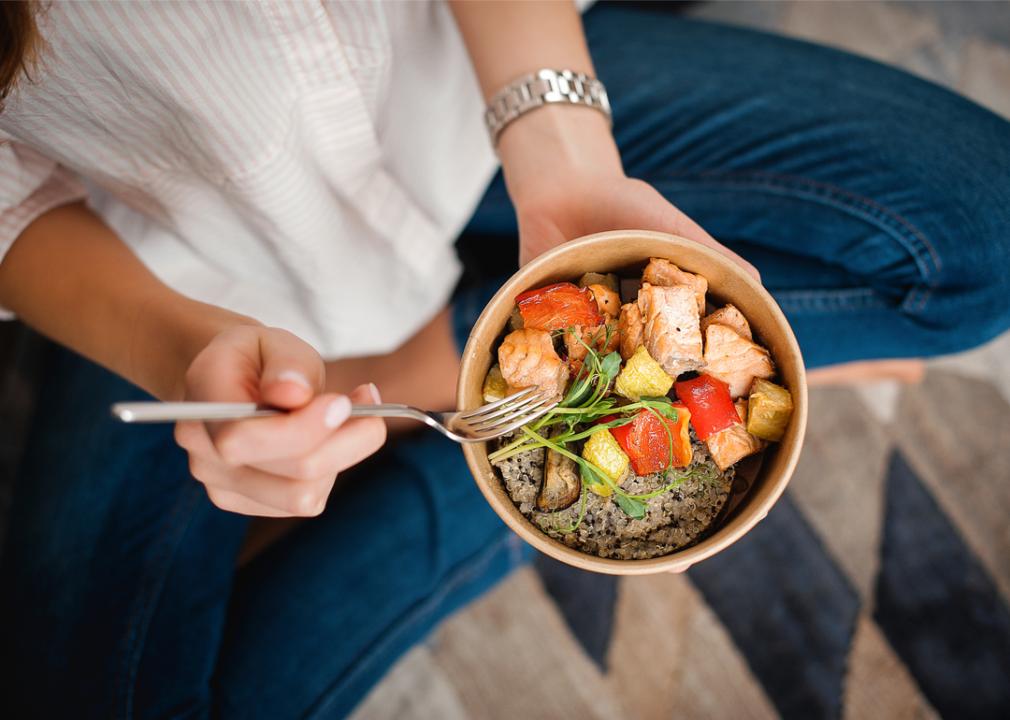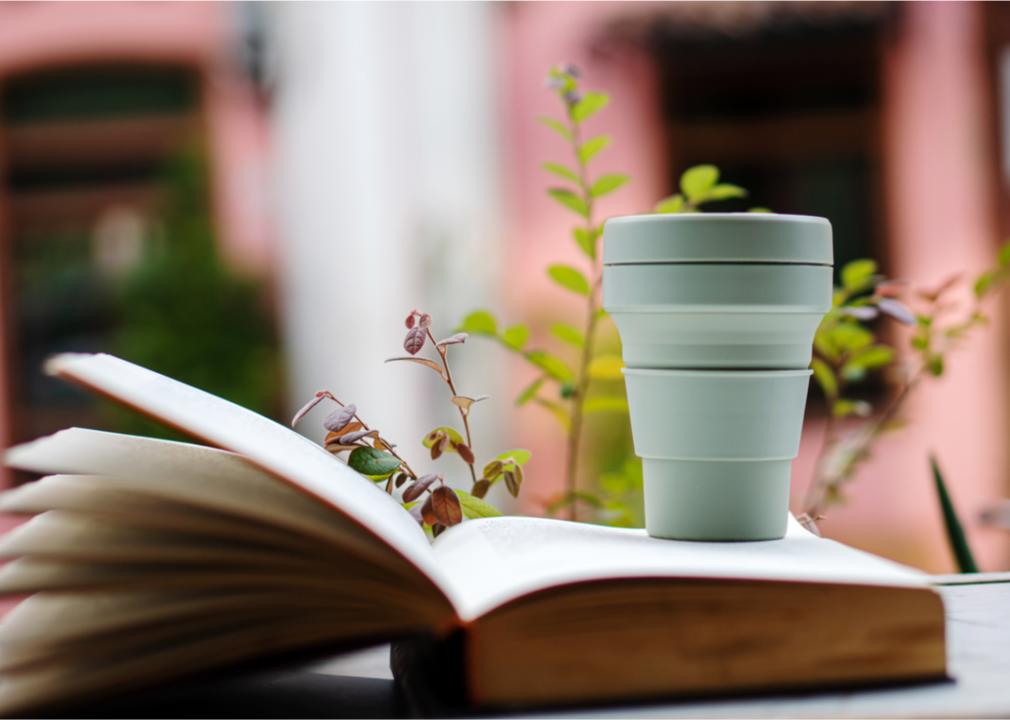5 ways to be more food sustainable while traveling

Natalia Deriabina // Shutterstock
5 ways to be more food sustainable while traveling
It’s the night before a big trip. You’ve got your luggage packed, and your reusable cutlery and bags are tucked safely in your carry-on. The next day, you take public transportation to the airport, and after getting through security, you beeline it to the nearest coffee kiosk. There, you present the barista with your collapsible travel mug and reusable water bottle to fill. As you sip your latte and eat oatmeal with your stainless steel spoon, you start researching places to explore, seeking out farm-to-table restaurants and local markets.
In a world where convenience is king, it’s easy to take advantage of to-go containers and packaged goods. Large corporations have made us dependent on disposable plastics, and a mere 20 companies are responsible for producing more than 50% of single-use plastics that end up in landfills around the world. As a result, 8 million tons of plastic is dumped into the ocean each year. The pollution this causes can threaten wildlife, alter ecosystems, and pose risks to human health. A 2018 WWF report shows that every summer tourists account for a 40% spike in marine litter entering the Mediterranean Sea, meaning consumers do still have an impact on the environment as a whole.
Thankfully, there are manageable ways to combat that pollution and help keep Mother Earth healthy. Bounce compiled five simple ways for the modern traveler to engage in food sustainability. In addition to helping save the planet, these methods are also more affordable in the long run and can reduce clutter, which is something we could all use while traveling.
With these easy tips, you’ll be well on your way to being more food sustainable while traveling.
![]()

Marina Litvinova // Shutterstock
Dine in
If you’re able to find a hotel with an on-site restaurant—or better yet, accommodations with a kitchen—dining in is the way to go. Ordering takeout results in an abundance of packaging and single-use cutlery that can be avoided. According to a study published in Nature Sustainability, 44% of plastics polluting the ocean are linked to takeout food.
“It was shocking to find out that bags, bottles, food containers, and cutlery together with wrappers account for almost half of the human-made objects on a global scale,” study leader Dr. Carmen Morales of the University of Cadiz, Spain told BBC. “We found them in rivers, on the deep seabed, on shorelines, and floating off our coasts.”

j.chizhe // Shutterstock
Seek out local markets
If you’re dining in, a trip to the store may seem like a logical next step; however, grocers tend to over-package their goods. Instead, try exploring local farmers markets and food vendors. U.S. travelers can use this tool to search for farmers markets based on zip codes, and making friends with locals is the best way to get the lowdown on where to go.
Of course, not all destinations have easily accessible markets. If you’re traveling somewhere that doesn’t offer one, try buying in bulk and packing your own produce bags.

Rawpixel.com // Shutterstock
Pack a reusable to-go container
Even if you are staying somewhere that allows for dining in, you will want to go out to try local eateries or pack snacks or on-the-go meals for excursions. Investing in reusable, silicone zip bags that fit nicely into a backpack or purse can make for easy, waste-free storage. They’re also great for storing leftovers to combat food waste.
Bonus: Procuring reusable zip bags of different sizes can be more advantageous, as these can be used for more than just food. You can store a wet bathing suit or separate clothing in the larger containers, and keep your passport dry in the small ones.

Microgen // Shutterstock
Do your research
It always pays off to be knowledgeable about the city you’re visiting. When researching restaurants, seek out those that utilize local ingredients. Not only do these establishments help out their communities by supporting local farmers, bakers, and the like, but they also lower greenhouse gas emissions from transportation. Buying fresh instead of frozen food means less plastic packaging waste, too.
If that’s hard to come by, look for eateries that make their sauces, dressings, and anything else in-house. Not only will the food most likely taste better, but you can feel better about doing your part to be more sustainable as well. Bonus points if you can find a place that does both.

Happy cake Happy cafe // Shutterstock
Bring your own collapsible mug and spork
While traveling, you will want to check out the local coffee shops and teahouses. If you’re getting your caffeine fix on the go, you may not want to pack a bulky travel mug. Luckily, you can invest in a collapsible cup that fits comfortably in your bag when not in use. If takeout becomes your only option for a meal, it’s always great to carry your own silverware. If you don’t want a spoon and fork jangling around in your bag, you can get a reusable spork that can do both jobs.
This story originally appeared on Bounce
and was produced and distributed in partnership with Stacker Studio.